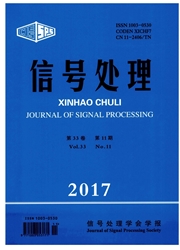

 中文摘要:
中文摘要:
本文提出了一种改进的混合蛙跳算法,利用混沌运动的遍历性改善初始个体的质量和引入高斯变异,提高了算法的全局搜索能力,同时将改进算法与人工神经网络结合,并把它应用到语音情感识别系统中。依据情感的维度空间模型,分别提取了情感语音的韵律特征与音质特征,研究了谐波噪声比特征随情感类别的变化特性。利用本文所提的蛙跳算法(SFLA)训练随机产生的初始数据,优化神经网络的连接权值,能快速地实现网络的收敛。在实验中比较了BP神经网络、RBF神经网络与改进SFLA神经网络分别用于语音情感识别的识别性能,结果表明基于改进SFLA的神经网络的平均识别率高于BP神经网络9.2个百分点,高于RBF神经网络7.9个百分点。因此本文所提的蛙跳神经网络用于语音情感识别能获得明显的识别性能的提升。
 英文摘要:
英文摘要:
By using the ergodicity of chaos movement to improve the quality of the initial individual and Gaussian mutation, a modified Shuffled Frog Leaping Algorithm is proposed to increase the capacity of global search. Shuffled Frog Leaping Algorithm Neural Network, composed of modified Shuffled Frog Leaping Algorithm and neural network, is used in speech emotion recognition. According to dimensional model emotion features were extracted and categorized into prosody features and voice quality features. HNR feature was studied corresponding to different emotion categories. Modified Shuffled Frog Leaping Algorithm was used to train the random initial data, optimize the connection weights and thresholds of the neural network and have a fast network convergence speed. In the recognition experiments BP neural network, RBF neural network and Modified SFLA neural network were compared under the same testing environment. Modified SFLA neural network reached the highest recognition rate, 9.2% better than BP neural network and 7.9% better than RBF neural network. The results show that Modified Shuffled Frog Leaping Algorithm neural network brings a promising improvement in the classification ability for speech emotion recognition.
 同期刊论文项目
同期刊论文项目
 同项目期刊论文
同项目期刊论文
 Blind Multiple Access Interference Suppression Algorithm Based on Relaxed Subgradient Projection for
Blind Multiple Access Interference Suppression Algorithm Based on Relaxed Subgradient Projection for Two-dimensional canonical correlation analysis and its application in small sample size face recogni
Two-dimensional canonical correlation analysis and its application in small sample size face recogni 期刊信息
期刊信息
